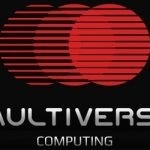Quantum News Briefs December 14: US Navy creates innovation center & advisory board to focus investments on AI, machine learning & quantum computing; Suspected Russian FSB officer charged with smuggling components for nuclear & hypersonic weapons & quantum computing; NY Creates & Bleximo announce new quantum computing R&D Partnership at Albany Nanotech Complex + MORE
By
Sandra Helsel posted 14 Dec 2022
Quantum News Briefs December 14 begins with the US Navy’s creation of an innovation center & advisory board to focus investments on AI, machine learning & quantum computing; next a summary of Suspected Russian FSB officer charged with smuggling components for nuclear & hypersonic weapons & quantum computing; third is the NY Creates & Bleximo announcement of their new quantum computing R&D Partnership at Albany Nanotech Complex + MORE
*****
US Navy creates innovation center and advisory board to focus investments on AI, machine learning & quantum computing

The U.S. Navy is creating an innovation center and an advisory board focused on science and technology as the service seeks to better invest its resources to stay ahead of potential adversaries in the long term, the Navy secretary told Defense News. Early focus areas will include, but are not limited to, artificial intelligence, machine learning and quantum computing.
The Navy Innovation Center will be located at the Naval Postgraduate School in Monterey, California, and will “focus on the truly transformational technology that we need, not just two years, five years down the road, but 10, 15 years down the road,” Carlos Del Toro said.
The Navy in the last several years tightened its relationship with small businesses and academia to leverage their new products and research investments.
A soon-to-be established Department of the Navy Science and Technology Advisory Board will also help make strategic decisions about where to invest limited funds. Del Toro said the Navy selected individuals from a range of backgrounds for the board, and the White House will screen them before they formally join the board. Click here to read article in-entirety
*****
Suspected Russian FSB officer charged with smuggling components for nuclear & hypersonic weapons & quantum computing
 A suspected officer with Russia’s Federal Security Service (FSB) was among seven people charged by U.S. prosecutors Tuesday with smuggling sensitive electronic components used to help make nuclear and hypersonic weapons and in quantum computing to help Russia’s military effort. Quantum News Briefs summarizes.
A suspected officer with Russia’s Federal Security Service (FSB) was among seven people charged by U.S. prosecutors Tuesday with smuggling sensitive electronic components used to help make nuclear and hypersonic weapons and in quantum computing to help Russia’s military effort. Quantum News Briefs summarizes.
The exporting of the technology involved is heavily regulated and occurred in violation of U.S. sanctions, according to a 16-count indictment unsealed Monday in Brooklyn. Federal prosecutors accuse Brayman and six others, including a New Jersey man, of purchasing and shipping millions of dollars worth of military and other restricted technologies to Russia. The indictment charges the seven suspects with conspiracy, money laundering and bank fraud.
According to the 16-count federal indictment, Alexey Brayman allegedly received an on-going supply of “advanced electronics and sophisticated testing equipment used in quantum computing, hypersonic and nuclear weapons development and other military and space-based military applications.”
U.S. officials said the arrests had disrupted the procurement network allegedly used by Russian intelligence services, which they said had been operating as far back as 2017.
Click here to read Washington Post article in-entirety.
*****
NY Creates & Bleximo announce new quantum computing R&D Partnership at Albany Nanotech Complex
 Bleximo Corp., a full-stack quantum computing system integration firm, has announced plans to expand its design, prototyping, and marketing operations to the Albany NanoTech Complex in Upstate New York. Quantum News Briefs summarizes the recent announcement.
Bleximo Corp., a full-stack quantum computing system integration firm, has announced plans to expand its design, prototyping, and marketing operations to the Albany NanoTech Complex in Upstate New York. Quantum News Briefs summarizes the recent announcement.
The company will also establish a research and development partnership with the New York Center for Research, Economic Advancement, Technology, Engineering, and Science (NY CREATES), a non-profit organization that accelerates innovation, facilitates public-private partnerships, and operates the nation’s most advanced, publicly-owned semiconductor research center.
Bleximo’s capabilities include:
- Chip design, chip fabrication and packaging technologies yielding record coherence times in superconducting quantum bits.
- Unique electronic automated design software which speeds up quantum processor layout and validation.
- Proprietary co-design methodology which boosts the speed and reduces algorithm complexity with appropriate processor architecture choice.
- A patent-pending blueprint for building hybrid superconducting/photonic processors with 1,000+ high-quality qubits.
- Cryogenic RubiconTM platform, which enables rapid tests of superconducting chips at millikelvin temperatures.
Making large-scale practical quantum processors requires the most modern microfabrication methods and tools as well as materials analysis capabilities and expertise. NY CREATES owns and operates the Albany NanoTech Complex – the nation’s most advanced, publicly-owned semiconductor R&D facility.
Over the last two decades, NY CREATES has built time-tested connections and capabilities with ecosystem partners in academia, industry and government. NY CREATES is actively engaged in technology development programs, particularly at its Albany and Rochester locations, through strategic efforts in integrated photonics, neuromorphic computing, quantum technologies, power electronics, and nano-biological devices. These R&D efforts are partnerships with a broad cross-section of entities – from federal agencies to start-up companies.
Click here to read complete announce on NY Creates site.
****
Detecting Dark Matter with Quantum Computers
 Scientists at the U.S. Department of Energy’s Fermi National Accelerator Laboratory have found a way to look for dark matter using quantum computers. Quantum News Briefs summarizes below.
Scientists at the U.S. Department of Energy’s Fermi National Accelerator Laboratory have found a way to look for dark matter using quantum computers. Quantum News Briefs summarizes below.
Aaron Chou, a senior scientist at Fermilab, works on detecting dark matter through quantum science. As part of DOE’s Office of High Energy Physics QuantISED program, he has developed a way to use qubits, the main component of quantum computing systems, to detect single photons produced by dark matter in the presence of a strong magnetic field.
“Both quantum computers and dark matter detectors have to be heavily shielded, and the only thing that can jump through is dark matter,” Chou said. “So, if people are building quantum computers with the same requirements, we asked ‘why can’t you just use those as dark matter detectors?'”
When dark matter particles traverse a strong magnetic field, they may produce photons that Chou and his team can measure with superconducting qubits inside aluminum photon cavities. Because the qubits have been shielded from all other outside disturbances, when scientists detect a disturbance from a photon, they can infer that it was the result of dark matter flying through the protective layers.
So far, Chou and his team have demonstrated how the technique works and that the device is incredibly sensitive to these photons. Their method has advantages over other sensors, such as being able to make multiple measurements of the same photon to ensure a disturbance was not just caused by another fluke. The device also has an ultra-low noise level, which allows for a heightened sensitivity to dark matter signals.
Click here to read the Phys.org article in-entirety.
*****
Sandra K. Helsel, Ph.D. has been researching and reporting on frontier technologies since 1990. She has her Ph.D. from the University of Arizona.


 A suspected officer with Russia’s Federal Security Service (FSB) was among seven people charged by U.S. prosecutors Tuesday with smuggling sensitive electronic components used to help make nuclear and hypersonic weapons and in quantum computing to help Russia’s military effort. Quantum News Briefs summarizes.
A suspected officer with Russia’s Federal Security Service (FSB) was among seven people charged by U.S. prosecutors Tuesday with smuggling sensitive electronic components used to help make nuclear and hypersonic weapons and in quantum computing to help Russia’s military effort. Quantum News Briefs summarizes.






 Bleximo Corp., a full-stack quantum computing system integration firm, has announced plans to expand its design, prototyping, and marketing operations to the Albany NanoTech Complex in Upstate New York. Quantum News Briefs summarizes the recent announcement.
Bleximo Corp., a full-stack quantum computing system integration firm, has announced plans to expand its design, prototyping, and marketing operations to the Albany NanoTech Complex in Upstate New York. Quantum News Briefs summarizes the recent announcement. Scientists at the U.S. Department of Energy’s Fermi National Accelerator Laboratory have found a way to look for dark matter using quantum computers. Quantum News Briefs summarizes below.
Scientists at the U.S. Department of Energy’s Fermi National Accelerator Laboratory have found a way to look for dark matter using quantum computers. Quantum News Briefs summarizes below.











